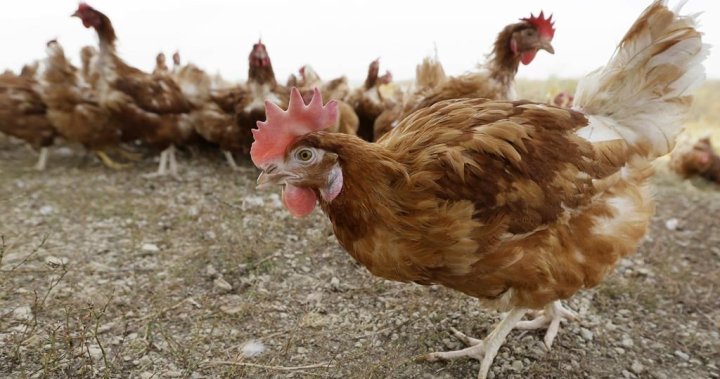The World Health Organization’s top scientist, Jeremy Farrar, has expressed serious concerns about the risk of the H5N1 bird flu spreading to humans. This warning comes after a human case of avian influenza was reported in the U.S. in a person who had contact with dairy cows. Avian flu is caused by influenza viruses that spread among wild aquatic birds and can infect domestic poultry and other animals. The H5N1 avian influenza virus first emerged in China in 1996 and has been causing outbreaks in birds since then. The recent detection of infection in dairy cattle has raised concerns among scientists due to the potential for the virus to evolve and develop the ability to infect humans.
Although the virus has caused numerous infections in mammals, including dairy cattle, the Canadian Food Inspection Agency has not detected any cases in livestock in Canada. Infectious disease expert Dr. Isaac Bogoch reassures the public that the average Canadian does not need to change their daily routine in response to the current situation. He notes that while the virus has been a concern for decades, recent large bird die-offs have raised alarms about its potential to mutate as it spreads from bird to bird and then to mammals. Although the virus is not efficiently transmitted between humans at this time, there is a fear that it could become more easily transmissible if it mutates.
Since 2003, there have been 889 human cases and 463 deaths caused by the H5N1 strain of avian influenza globally, with a case mortality rate of about 52 percent as of April 1, according to the WHO. This indicates the potentially deadly nature of the virus and the importance of preventing its spread to humans. Dr. Bogoch emphasizes the need for countries to have systems in place to quickly detect H5N1 to prevent spread, continue research and development of treatments like therapeutics and vaccines, and ensure international communication. Both Bogoch and Farrar stress the importance of being proactive in addressing the concerns surrounding the virus to prevent any potential outbreaks.
The evolving nature of the H5N1 avian influenza virus poses a significant risk to human health, as the potential for mutation and increased transmissibility could lead to widespread outbreaks. While the virus is currently not efficiently transmitted between humans, the possibility of it mutating and becoming more easily transmissible is a major concern for health authorities. The high mortality rate associated with the H5N1 strain highlights the need for vigilance in monitoring and preventing the spread of the virus to humans. Efforts to detect H5N1 quickly, develop effective treatments and vaccines, and enhance international communication are essential in mitigating the risks associated with the virus.
The recent detection of H5N1 infection in dairy cattle has added to concerns about the spread of the virus to mammals and its potential to evolve to infect humans. While no cases have been detected in Canadian livestock, the possibility of the virus mutating and becoming more transmissible remains a key concern for scientists and health authorities. Ensuring prompt detection of H5N1, ongoing research and development of treatments, and effective international communication are crucial in addressing the risks associated with the virus. Despite these concerns, experts like Dr. Bogoch reassure the public that the average Canadian does not need to make any changes to their daily routine at this time in response to the current situation.















